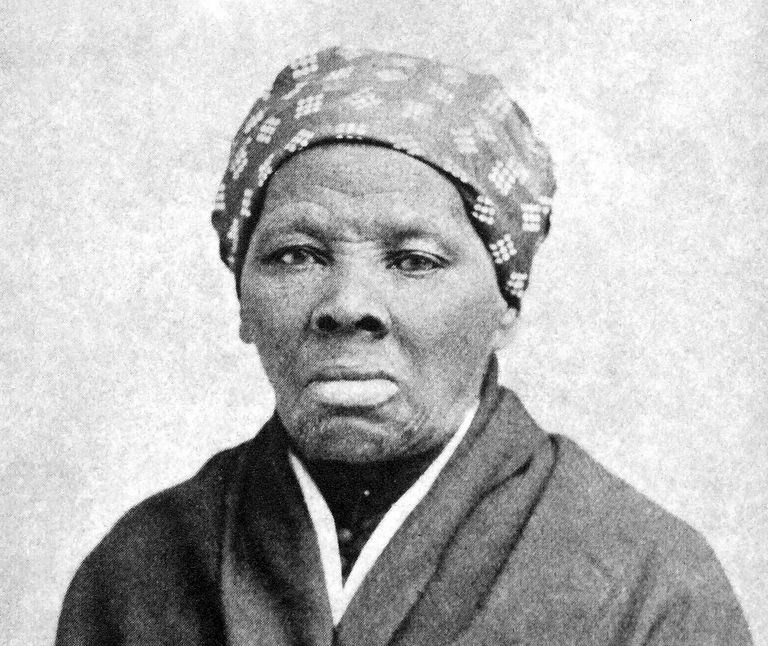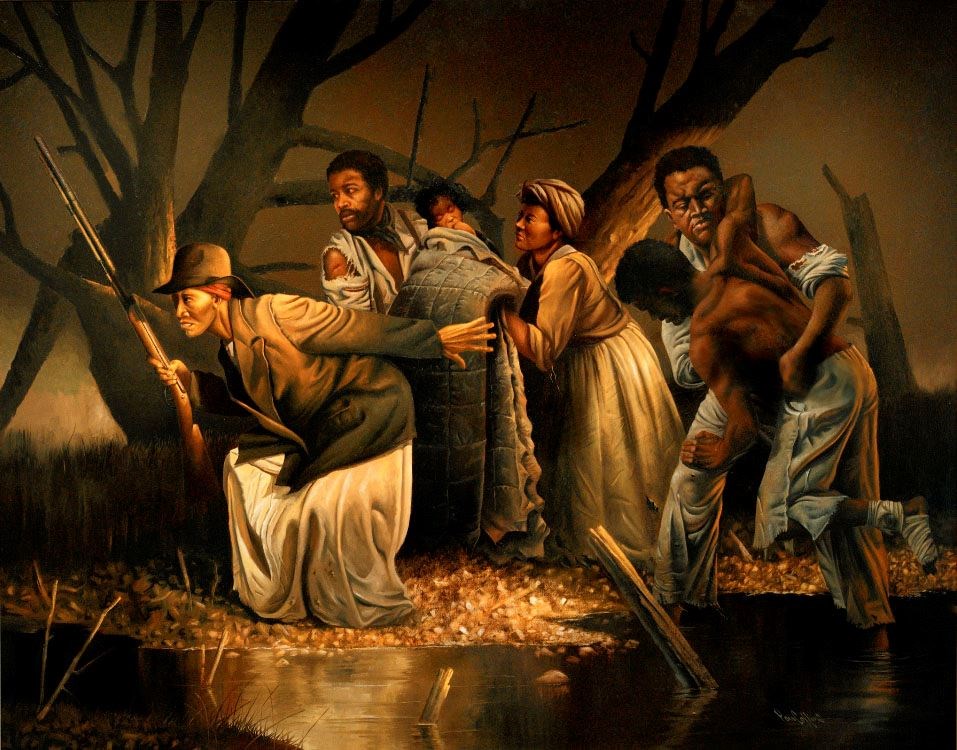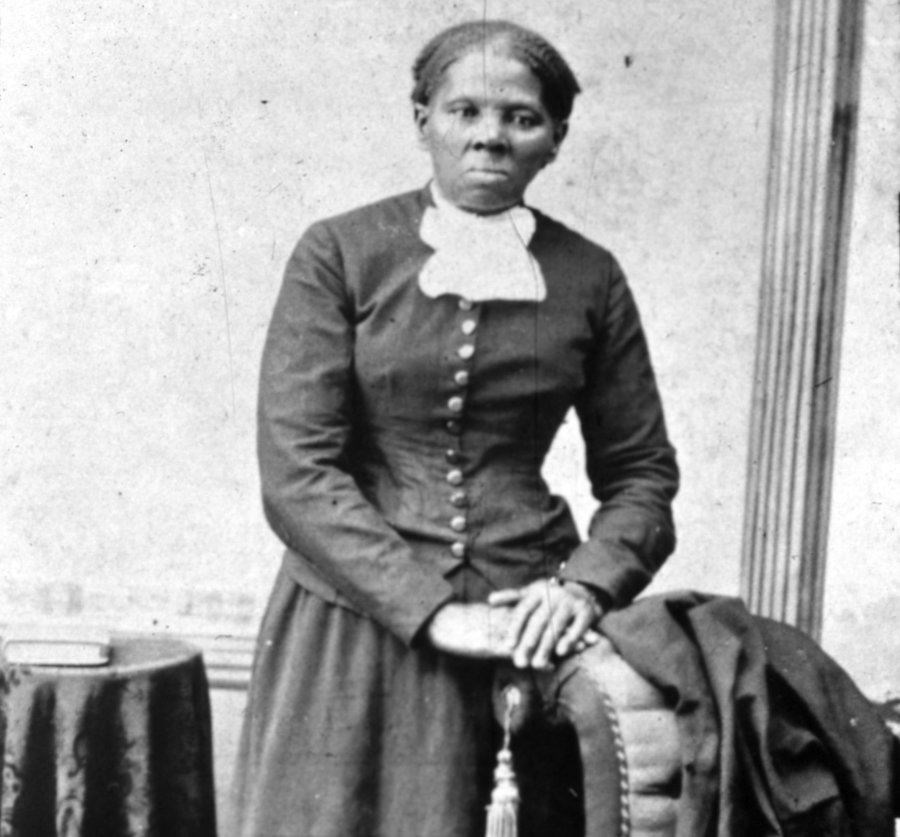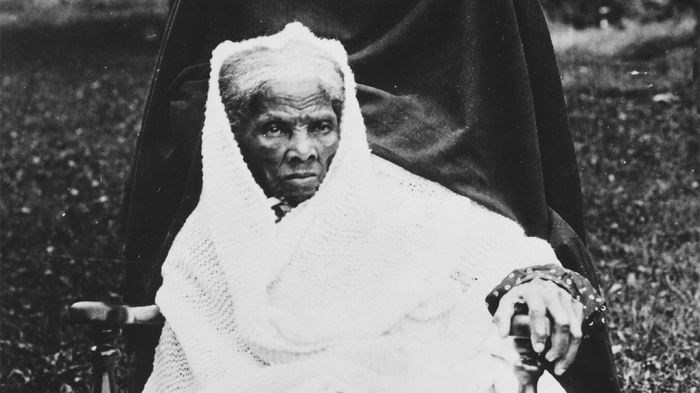 Harriet TubmanPhotographs from the Library of Congress
Harriet TubmanPhotographs from the Library of Congress
The pictures of villains are displayed in the news and in the media, but maybe people aren’t always the enemy just cause they’ve got their name on a wanted poster. In the 1800’s, the fight for black rights was very much frowned upon. Harriet Tubman shined light on abolishing slavery even though she had a $40,000 price tag for whoever found her. Harriet Tubman was born during 1820 in Dorchester County, Maryland. Harriet Tubman was born into slavery and managed to escape at age 29. She then dedicated her life to being an abolitionist and returned to the south multiple times to assist slaves in their journey to freedom. She also became an asset to the Union Army, being a nurse and a spy. When Tubman started to settle down, Tubman married Nelson Davis and adopted a baby girl who she named Gertie Davis. Harriet Tubman easily obtained both qualities of bravery and leadership through her ability to venture on even through all her hardships. She was able to control a large group of slaves slyly enough to not ever get caught. She became a master of the Underground Railroad and saved hundreds of lives on her own. Harriet Tubman possesses the heroic characteristics of bravery and leadership because she was always thinking about how she could give back to the world even when the world offered her nothing.
 Harriet on the Underground RailroadPaul Collins Art Harriet Tubman portrayed her bravery by always believing in her fight for slaves rights. In the world book database, Matthew Calvin explains the vow that Harriet makes to herself once she’s escaped her nightmare. “Harriet Tubman, acting alone, escaped from slavery in 1849. After arriving in Philadelphia, she vowed to return to Maryland and help liberate other slaves”(Calvin). The moment Harriet Tubman escaped slavery, she knew that she would go back to save others. In a world of pain and oppression, you wouldn’t think anyone would ever want to go back to their plantation. Her compassion for her fellow slaves, who were worked to the bone by white men, is much stronger than her fear of her childhood. Lawrence W Baker explained in his published article on the Gale database that, “Tubman eventually came to prefer field labor over domestic duties. In her early childhood she inevitably displeased her employers and was frequently sent home in between jobs, often sick and beaten, needing the nursing care of her mother, "Old Rit"(Baker). Even as a young girl, Tubman had the courage to stand up for herself even in the smallest ways. Her bravery shines through this quote because she always knew that she was gonna escape the plantation and she courageously pushed away her owner to do so. Many slaves spent their whole lives hiding behind their fragile, weak bodies, but not Harriet. She was brave enough and passionate enough to realize that there is more than just field work. Without her bravery always by her side, she would have never surpassed all the hardships she faced. Harriet Tubman always believed in herself even when she was the lowest on the totem pole. Due to her bravery and compassion, she is rightfully remembered as a lifesaver.
Harriet on the Underground RailroadPaul Collins Art Harriet Tubman portrayed her bravery by always believing in her fight for slaves rights. In the world book database, Matthew Calvin explains the vow that Harriet makes to herself once she’s escaped her nightmare. “Harriet Tubman, acting alone, escaped from slavery in 1849. After arriving in Philadelphia, she vowed to return to Maryland and help liberate other slaves”(Calvin). The moment Harriet Tubman escaped slavery, she knew that she would go back to save others. In a world of pain and oppression, you wouldn’t think anyone would ever want to go back to their plantation. Her compassion for her fellow slaves, who were worked to the bone by white men, is much stronger than her fear of her childhood. Lawrence W Baker explained in his published article on the Gale database that, “Tubman eventually came to prefer field labor over domestic duties. In her early childhood she inevitably displeased her employers and was frequently sent home in between jobs, often sick and beaten, needing the nursing care of her mother, "Old Rit"(Baker). Even as a young girl, Tubman had the courage to stand up for herself even in the smallest ways. Her bravery shines through this quote because she always knew that she was gonna escape the plantation and she courageously pushed away her owner to do so. Many slaves spent their whole lives hiding behind their fragile, weak bodies, but not Harriet. She was brave enough and passionate enough to realize that there is more than just field work. Without her bravery always by her side, she would have never surpassed all the hardships she faced. Harriet Tubman always believed in herself even when she was the lowest on the totem pole. Due to her bravery and compassion, she is rightfully remembered as a lifesaver.
 Harriet TubmanNational Public Radio Incorporated Another characteristic that gave her the faith to continue to liberate slaves was her leadership skills. Nancy Nickerson informs us in her article titled,” The MY HERO Project”, that “Eventually she led about 300 people to freedom in Canada and became known as the "Moses of Her People" (Nickerson). This exemplifies leadership because she was able to lead a pack of 300 people all the way to Canada which takes an extreme talent in organization and leadership skills. Tubman was so respected and trusted by her fellow slaves that they nicknamed her “Moses”. She earned this name because she always accomplished her mission and always encouraged her pack to keep moving. Matthew Calvin in his article on the word book database helps us understand Harriet Tubman’s strive to lead fugitives. “Tubman made her first of 19 trips back shortly after Congress passed the Fugitive Slave Act of 1850. This law made it a crime to help runaway slaves”(Calvin). Harriet’s bravery allowed her to escape slavery on her own without any help or guidance. Her courage made her want to return to the plantations so slaves wouldn’t have to escape solo the way she did. The leadership that Tubman portrays tells us that a true leader would never abandon her fight when obstacles get in the way. Without Harriet Tubman having the ability to maintain strong leadership skills throughout her journey, she would of never made the empowering effect she has on the world today.
Harriet TubmanNational Public Radio Incorporated Another characteristic that gave her the faith to continue to liberate slaves was her leadership skills. Nancy Nickerson informs us in her article titled,” The MY HERO Project”, that “Eventually she led about 300 people to freedom in Canada and became known as the "Moses of Her People" (Nickerson). This exemplifies leadership because she was able to lead a pack of 300 people all the way to Canada which takes an extreme talent in organization and leadership skills. Tubman was so respected and trusted by her fellow slaves that they nicknamed her “Moses”. She earned this name because she always accomplished her mission and always encouraged her pack to keep moving. Matthew Calvin in his article on the word book database helps us understand Harriet Tubman’s strive to lead fugitives. “Tubman made her first of 19 trips back shortly after Congress passed the Fugitive Slave Act of 1850. This law made it a crime to help runaway slaves”(Calvin). Harriet’s bravery allowed her to escape slavery on her own without any help or guidance. Her courage made her want to return to the plantations so slaves wouldn’t have to escape solo the way she did. The leadership that Tubman portrays tells us that a true leader would never abandon her fight when obstacles get in the way. Without Harriet Tubman having the ability to maintain strong leadership skills throughout her journey, she would of never made the empowering effect she has on the world today.
Harriet Tubman possesed bravery and leadership through her ability to continue to help the people who didn’t have the opportunity and courage she did. Harriet Tubman was a selfless and courageous slave who dedicated her life to leading other slaves to freedom. Her bravery allowed her to continue these journeys to liberate slaves for ten years. An article titled,”How Big Was the Price on Harriet’s head?” by Pamela Landy, stated that, “The reward for the capture of Harriet Tubman (c. 1820-1913), an ex-slave who became famous for helping southern slaves escape to freedom in Canada, went as high as $40,000” (Landy). This is a clean cut example of how nothing scared Tubman away from the vow she made to herself. She inspires me and people all around the world every day due to her self honesty and empowerment. Her actions constantly challenge people to strive for even greater greatness. Harriet Tubman ventured far beyond the norms of any other enslaved black women. Her ability to rise above these norms led her to become one of the most influential abolitionists to ever live.
 Old Harriet TubmanVariety.com
Old Harriet TubmanVariety.com
Works Cited
Baker, Lawrence."Harriet Tubman." Contemporary Black Biography, vol. 9, Gale, 1995.
Biography in Context,
Clavin, Matthew. "Tubman, Harriet." World Book Student, World Book, 2018,
www.worldbookonline.com/student/article?id=ar569550. Accessed 5 Feb. 2018.
Landy, Pamela. “How Big Was the Price on Harriet Tubman’s Head?” Answersuniverse.com,
2018, answersuniverse.com/how-big-was-the-price-on-harriet-tubmans-head/.
Nickerson, Nancy. “Harriet Tubman.” The MY HERO Project, myhero.com/harrietTubman.
Page created on 2/13/2018 6:45:16 PM
Last edited 2/17/2018 7:57:18 PM
